When I have the time I do my best to help students and teachers. Recently some senior high school students from De La Salle University Integrated School interviewed me for a research project.
Today I'm sharing the interview by Jihan Marie Claire G. Ferrer, whose adviser is Mr. Engelbert C. Talunton.
The photo shows l-r: Samantha Parker, Leila Magtules, and Jihan Ferrer.
~ Cecilia Brainard
INTERVIEW QUESTIONS FOR CECILIA MANGUERRA BRAINARD
OPENING
A. Good day! What is your name?
Thanks for the interview. My name is Cecilia
Manguerra Brainard.
B. What is your profession?
Writer, Editor and Publisher
C. How long have you been under the said
profession?
My first book, Woman with Horns and Other Stories, was published in 1987 so I’ve been doing
literary work for over 30 years.
a. What are some of your best known works?
When the Rainbow Goddess Wept, The Newspaper
Widow, Magdalena, and Woman With Horns and Other Stories (Please visit http://www.ceciliabrainard.com for
my other titles.)
I.
Clarification of Information
A. Kindly
elaborate on the different voices that can be used for narration?
The elements “voice” and “point of
view” have different definitions. Point of view is defined in the question
below. Voice is more difficult to define. Each writer has his or her own
writing voice, which involves subject matter, handling of that subject matter,
the themes he/she like to explore, as well as the style of writing. Each writer
will have his/her own writing voice. But each written work will have it’s own
voice as well, determined primarily by the demands of the work.
a. How
does each point of view change the impact of the story?
“Point of view”
has two meanings. The first meaning refers to who your narrator is or “through
whose eyes are we experiencing the story.” The second meaning refers to how the
story is told or the technique in which the story is told. Both impact the story.
The second meaning
of point of view can refer to whether the writer will be using the first person
“I”, second person “You”, third person “she”, or the omniscient point of view.
b. What
is the most used point of view in most books that you have encountered?
There is no pat answer to this
question because writers use them all. Perhaps the least used is the second
person point of view, “you.”
c. What
is the best voice that can be used in telling a narrative?
There is no pat answer as to what
is the best voice to be used. Obviously one should strive to have one’s own
individual voice and not sound like Ernest Hemingway for instance. But to delve
deeper into the topic, each story demands its own voice, so that even if
Hemingway has his own voice, each of his stories will have its own unique
voice as well.
B. Why
is description important in telling a story?
Description
allows the writer to create visual images, which is essential to story-telling.
a. How
can one describe a certain object/place/person/expression etc.?
There are many ways of doing this,
but an important tip is that the writer has to tune in to point of view, and
try to see, hear, feel, experience what is going on through the eyes and mind
of his character. In other words, if (for
instance) a girl breaks up with her boyfriend, she will see the world in a sad
and bleak way, and that is how the object, place, etc. should be expressed.
b. How
can descriptions be able to affect the mood of the reader?
The writer can create mood, which
is picked up by the reader. A reader can then read a “scary” book or a “funny”
or “sad” piece. Obviously, description in those works help create those feelings.
c. Is
there such a thing as ‘too much description’?
Yes, a writer can go on and on describing this and that until that the reader forgets the point. Having said that,
writers are different and some will want a lot of description, while others will not.
It’s an artistic choice.
i.
(If yes) Then how can it be avoided?
Most writers will have their drafts
critiqued before submitting it, and those giving feedback will hopefully mention
to the writer when their writing has drifted or become tedious. Seasoned
writers will have developed their writing style and will know what works or
doesn’t for them.
C. How
can one write an effective story?
This is a very
broad question because each writer has his/her own way of writing an “effective
story.” To me character and character development are very important. The focus should be on those. In many ways the
other elements are tools to bring out character and character development.
II.
Personal Experiences
A.
How
do you usually obtain the plot for a story?
To
me, plot is determined by how my characters react in the story. I may have an
overall plan or plot, but in the end, it’s how the characters respond to events
in the story that determine the plot. It’s
a cause-and-effect sort of thing, which requires me to delve deep into the
motivations of my characters. For instance, if they want something, they will
take the steps to make that happen.
Inspiration
or ideas are unpredictable but I find that most of my work involves important
historic events. For instance my first novel (When the Rainbow Goddess Wept), is a coming of age story about a young
girl during World War II in the Philippines. In this novel I integrated some of the
stories I heard from my parents about the war, and I have characters in there
that are loosely based on them. My recent novel, The Newspaper Widow, was
inspired by my great-grandmother Remedios Lopez Cuenco who was the First Woman
Publisher in Cebu.
I
have stories that were also inspired by characters in Cebu, although I’ve
fictionalized them. This is why the setting in many of my stories is Ubec (Cebu
backwards) so I feel free to change things around. Further much of my work
deals with my Filipino as well as my Filipino American experiences.
B.
In
writing a story/novel, what are some of the greatest challenges that you
encounter during the writing process?
These
are the biggest writing fears: that one's work is terrible, embarrassing, and
awful.
How does one get over them? A writer has to accept that the first (or second or even third) draft will generally not be perfect. Anne Lammott in her book, Bird by Bird, calls this the "Shitty First Draft." So what the writer should do is write this "shitty first draft", then afterwards look at it and see what is in that draft that's worth developing, and take it from there. Very rarely is a first draft ready for publication. At times, first drafts may even need to be discarded. Sometimes, there is a kernel there, a seed, a line or two, or paragraph, or maybe more, that sparkles and can be developed.
How does one get over them? A writer has to accept that the first (or second or even third) draft will generally not be perfect. Anne Lammott in her book, Bird by Bird, calls this the "Shitty First Draft." So what the writer should do is write this "shitty first draft", then afterwards look at it and see what is in that draft that's worth developing, and take it from there. Very rarely is a first draft ready for publication. At times, first drafts may even need to be discarded. Sometimes, there is a kernel there, a seed, a line or two, or paragraph, or maybe more, that sparkles and can be developed.
Unlike
other art forms (such as acting, or dance) writing is a private matter. Ultimately, it’s between me, my imagination and my computer, and so I have to
get into that private world in my imagination where my characters live and I
write about them. Every project is a new
challenge, and so allowing the success or failures of your past works to affect
you slows you down. You just have to look at what you are trying to do and do
your best, and hope your readers get it.
C.
As
someone who has experience in writing, what is the greatest advice that you can
give to someone who is just starting in writing?
1)
Keep a journal and write, write, write;
2)
Read a lot, and read the type of pieces that are similar to what you want to
write (articles or stories or poems);
3)
Don't compare yourself with the others. It will do you no good to fret because
some of your contemporaries are getting published or getting awards. You have
your own struggle, your own stories to write.
4)
Take classes or join workshops so you have a structure.
~ END OF INTERVIEW ~
Read also
Interview of Cecilia Brainard by Leila Magtules #DLSU
Interview of Cecilia Manguerra Brainard by Samantha Servino Parker #DLSU
Interview of Cecilia Manguerra Brainard by Allison Hunter
Interview Cecilia Brainard: "Woman with Horns" and Different Facets of the Filipino Woman
Enotes.com Biography of Cecilia Manguerra Brainard
Interview of Cecilia Manguerra Brainard about Creative Writing
Interview of Cecilia Brainard "Good and Bad Reasons for Being a Writer
Interview: Cecilia Brainard's Novel "Magdalena" Revealed
Tags: Philippine, Philippines, Cebu, Cebuano, literature, authors, novels, books, writers, fiction, Cecilia Brainard, Cecilia Manguerra Brainard
Read also
Interview of Cecilia Brainard by Leila Magtules #DLSU
Interview of Cecilia Manguerra Brainard by Samantha Servino Parker #DLSU
Interview of Cecilia Manguerra Brainard by Allison Hunter
Interview Cecilia Brainard: "Woman with Horns" and Different Facets of the Filipino Woman
Enotes.com Biography of Cecilia Manguerra Brainard
Interview of Cecilia Manguerra Brainard about Creative Writing
Interview of Cecilia Brainard "Good and Bad Reasons for Being a Writer
Interview: Cecilia Brainard's Novel "Magdalena" Revealed
Tags: Philippine, Philippines, Cebu, Cebuano, literature, authors, novels, books, writers, fiction, Cecilia Brainard, Cecilia Manguerra Brainard







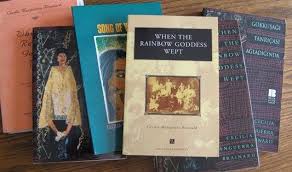



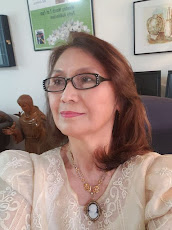

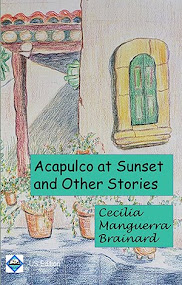



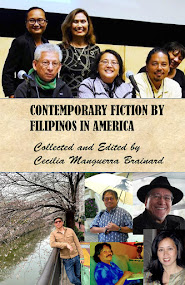
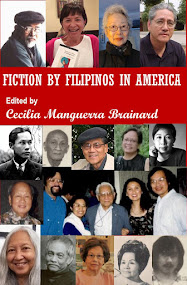



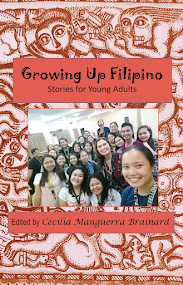
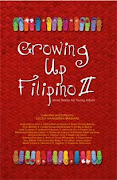


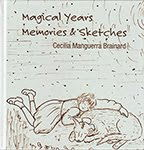


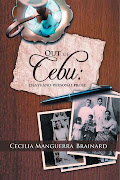

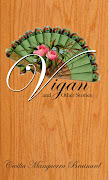

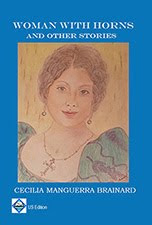

No comments:
Post a Comment